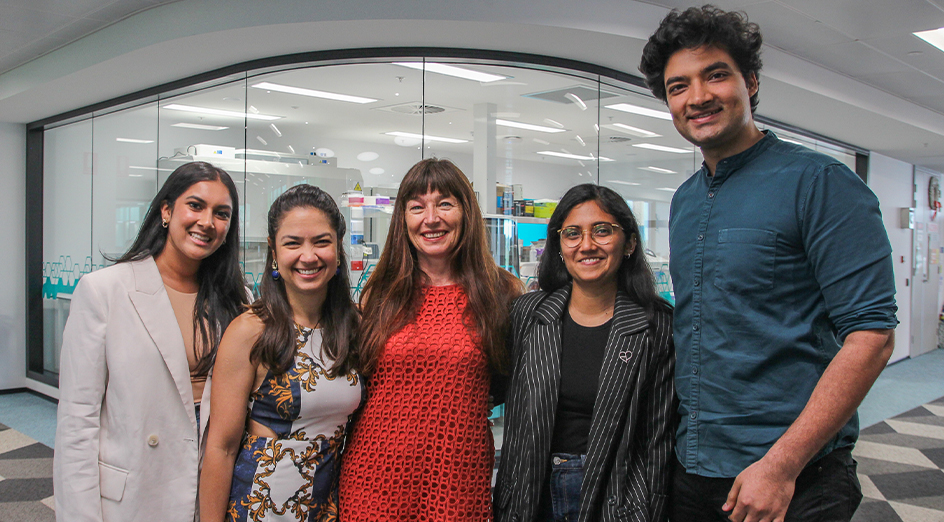The first drop of mother's milk a baby receives after birth, known as colostrum, can dramatically alter its susceptibility to worm infections months to years later, according to an international study published today in Allergy.
The study, conducted across both animal models and newborns in Uganda, found colostrum played a pivotal role in controlling worm infections.
It also demonstrated that consumption of colostrum at birth led, weeks later, to a significant expansion of key immune cells in the gut, called type 2 innate lymphoid cells (ILC2s), which protect against parasitic worms.
 Image: Professor Valerie Verhasselt and her team.
Image: Professor Valerie Verhasselt and her team.
Study lead author Professor Valerie Verhasselt, Director of the Larsson-Rosenquist Foundation Centre for Immunology and Breastfeeding at The University of Western Australia, said that, notably, this occurred independently of gut bacteria.
"Colostrum is the first form of milk produced by the mammary glands of humans and other mammals immediately following delivery of a newborn and is uniquely rich in bioactive compounds," Professor Verhasselt said.
"While long regarded as nature's first gift, with major impact on neonatal mortality in poor hygiene settings, colostrum's long-term health benefits have remained largely unknown; a gap we wanted to address by looking at how colostrum deprivation impacted the development of gut immunity.
"We found that colostrum is a lifelong investment in immune health."
A world leader in neonatal immunology, Professor Verhasselt said despite guidelines from the World Health Organisation, at least one in three newborns globally was failing to receive the full dose of colostrum, meaning the findings had significant impact.
"Whether because of delayed breastfeeding, a prelacteal feed such as formula given to infants or other reasons, many newborns miss out on the benefits of colostrum with implications on gut immunity development and long-term health," she said.
"Additionally, there are more than 1.5 billion people worldwide who are afflicted by soil-transmitted helminths, parasitic worms that infect humans through contact with contaminated soil, which can have a dramatic life long impact on child health.
"The potential to mitigate a serious burden of disease through colostrum intervention is immense.
"Our study underscores the importance of shifting attention beyond microbiota interventions to embrace the holistic impact of colostrum on child health outcomes, with research now under way looking at the importance of colostrum on the prevention of COVID-19, growth failure and allergies."






